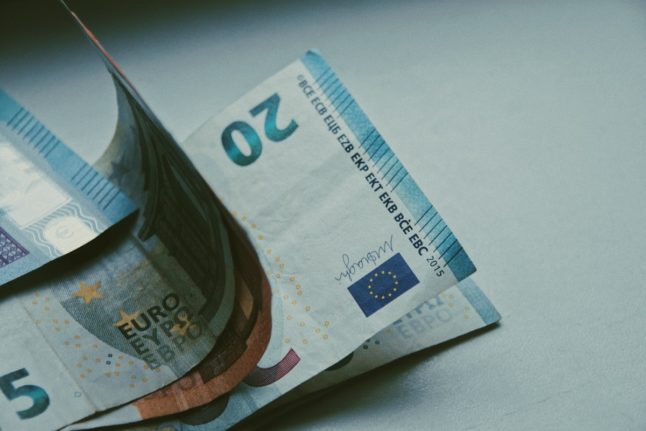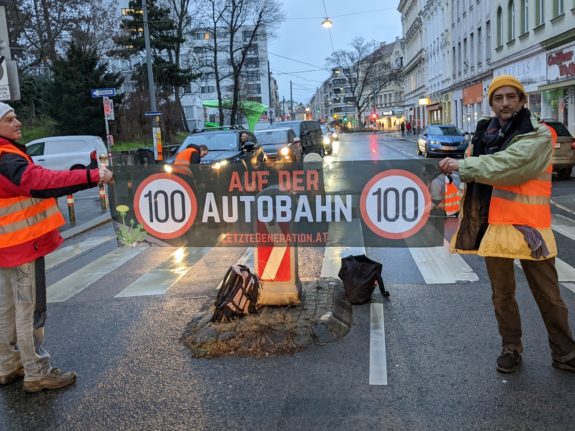With the cost of everyday goods rising with inflation, the Austrian government has put in place several measures to help residents financially.
Here’s what you need to know about the payouts coming soon.
Klimabonus
The Klimabonus, also known as the climate and anti-inflation bonus, was first released in 2022 and it involved a one-time payment of €500 for almost every resident in the country.
A similar payout was announced earlier this year – although the amount is significantly lower and it depends on your place of residence.
The prerequisite for the subsidy payment is that your primary residence is Austria for at least 183 days (around six months) of the calendar year.
The climate bonus is a part of Austria’s eco-social tax reform, a set of measures to promote climate protection. It includes a tax on CO2 emissions, which increases fuel prices and affects Austrian drivers. The annual Klimabonus aims to offset this expense.
The Austrian government confirmed that the payout of the Klimabonus 2023 “will start in autumn”. The money is expected to be released to people in September.
So what’s different about the bonus this time around?
One big change is that the amount will range from €55 to €220 per person. Adults receive between €110 and €220, with children getting €55 to €110.
“The climate bonus will be staggered regionally,” said the Austrian government. The climate bonus consists of a flat-rate base amount and a graduated regional compensation, the amount of which depends on the place of residence.”
For instance, adults living in ‘category 1’ urban centres with very good infrastructure, such as Vienna, will receive €110. People in ‘category 2’ (such as Graz and Salzburg) will receive €150 bonus per person, those in ‘category 3’ (such as Wolfsburg or Mittersill) will get €185 each and those in ‘category 4’ rural communities (like Mariazell, Werfen, or Sölden) will get the highest payment of €220.
READ ALSO: Everything we know about Austria’s 2023 Klimabonus
The payment will be made as a transfer directly to people’s bank accounts for those who have received the Klimabonus this way previously or who have updated their bank information on FinanzOnline.
There is no need to apply for the subsidy. For those who don’t have an Austrian bank account or their information isn’t set up online – a voucher will be sent by post.
The Climate Ministry has said that account transfers are to be completed within two weeks – although last year it took a lot longer so it may not end up being quite as fast.
Meanwhile, some people won’t receive the Klimabonus until spring.
Anyone who has not yet met the requirement for registering their main residence by the deadline of July 2nd – i.e. the 183rd day of the calendar year – will get the bonus in spring 2024. This affects those people who moved to Austria in the first half of the year, as well as newborn babies.
READ ALSO: Why haven’t I received my Klimabonus yet?
Family support payment in Upper Austria
The second half of the school allowance bonus paid out by the province of Upper Austria will be transferred to families from the first week of September. More than 50,000 families in Upper Austria are receiving this support, which could be applied for online until the end of July.
The subsidy amounts to €200 per child. The payment is being made in two parts – the first half should have been transferred to accounts at the end of August.
Since the subsidies are limited to a maximum of four children, the maximum amount that families can receive for both payouts is €800.
The bonus payment is separate to the federal school subsidy of €105.80.
Vienna housing bonus
A new housing bonus (Wohnbonus) of €200 can be claimed by people in Vienna up until the end of September 2023.
This support is intended to cushion the rising housing costs for households with lower incomes. The allowance is aimed at people receiving social benefits, and 245,000 households in Vienna are entitled to the payment.
The requirements are for one-person households to have a gross annual income of no more than €40,000 in the previous year. For multi-person households, the limit is €100,000 gross. A letter with the details should have been sent to all households by post in July.
As The Local reported, the Austrian government has announced a rent brake from 2024 to help limit rising rents.
READ ALSO: Austria to introduce nationwide rent brake
Half monthly rents in Vienna
The new ‘community building bonus’ (Gemeindebau-Bonus) will come into force for some tenants in the capital Vienna.
At the beginning of September, all tenants living in Vienna’s municipal housing should receive a special payment in the form of a credit for half a net monthly rent.
Meanwhile, at the end of this year, those tenants whose rent was increased in the years 2022-2023 will receive an additional credit in the form of a payment bonus. The amount of credit is based on the extent of the increases that took place in the period.
READ ALSO: What new subsidy payment is Vienna offering for renters?



 Please whitelist us to continue reading.
Please whitelist us to continue reading.
Member comments